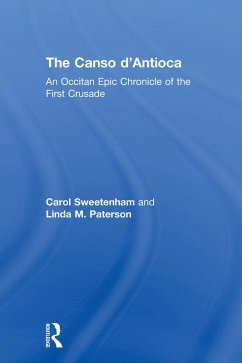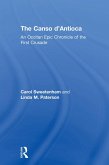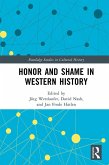The Canso d'Antioca is part of a much larger epic describing the events of the First Crusade, related to the Old French Chanson d'Antioche but with many unique features, so presenting a double interest to scholars of both history and literature. It is a source text for the First Crusade with information not contained in any other source. It is also an early and seminal text for Occitan epic, few examples of which survive. And arguably it represents the first work of vernacular verse history in France, raising fundamental questions about the junction of epic and historiography. This first modern edition of the text is accompanied by a new translation into English on facing pages, and supported by detailed notes and a glossary of proper names cross-referenced to all major First Crusade sources. The introduction discusses the history of the text and manuscript, the value of the Canso as a historical document, and its place both within the historical tradition of the Crusade and within Occitan literary tradition and 12th-century vernacular historiography.
Dieser Download kann aus rechtlichen Gründen nur mit Rechnungsadresse in A, B, BG, CY, CZ, D, DK, EW, E, FIN, F, GR, HR, H, IRL, I, LT, L, LR, M, NL, PL, P, R, S, SLO, SK ausgeliefert werden.









